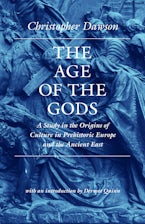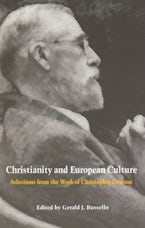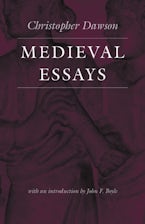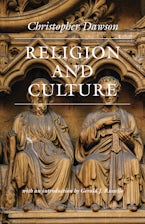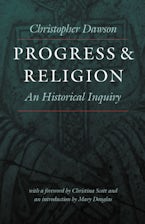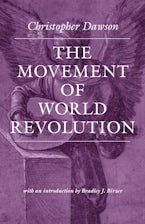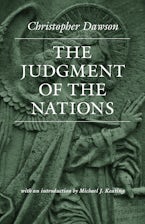- Home
- Works of Christopher Dawson
- history
- The Age of the Gods
Preparing your PDF for download...
There was a problem with your download, please contact the server administrator.
The Age of the Gods
A Study in the Origins of Culture in Prehistoric Europe and the Ancient East
Works of Christopher Dawson
Introduction by Dermot Quinn
Imprint: Catholic University of America Press
When first published in 1928, The Age of the Gods was hailed as the best short account of what is known of pre-historic man and culture. In it, Christopher Dawson synthesized modern scholarship on human cultures in Europe and the East from the Stone Age to the beginnings of the Iron Age. His focus was not merely on the material development of early society but more intently on the social and spiritual development of man that accompanied it. Piece by piece, Dawson fit together the varied influences that brought into being the ancient foundations on which modern civilization was built.
Published soon after World War I, the book uncovered the common tradition and unity of culture of European civilization in hope of bringing cooperation and peace to the people of Europe. It defined what a culture is, how cultures change, and what constitutes progress. Dawson consulted the studies of archaeologists, early historians, anthropologists, and ethnologists, and presented an uncommonly balanced and greatly admired survey of the whole.
Presented here with a new introduction by Dermot Quinn, The Age of the Gods continues the popular Works of Christopher Dawson series. Among other topics, the book sketches the glacial age and the beginnings of human life, the Paleolithic and Neolithic cultures and the rise of the peasant culture in Europe, the development of Sumerian culture, the archaic culture of Egypt, the megalithic culture in Western Europe, the age of empire in the Near East, the Bronze Age in Central Europe, the formation of the Indo-European peoples, the Mycenaean culture of Greece, and the beginnings of the Iron Age in Europe.
Christopher Dawson (1889-1970) is recognized as one of the most important Catholic historians of the twentieth century, authoring numerous books, articles, and scholarly monographs. Dawson was lecturer in the History of Culture, University College, Exeter; Gifford lecturer; Charles Chauncey Stillman Chair of Roman Catholic Studies at Harvard University from 1958 to 1962; and editor of the Dublin Review.

